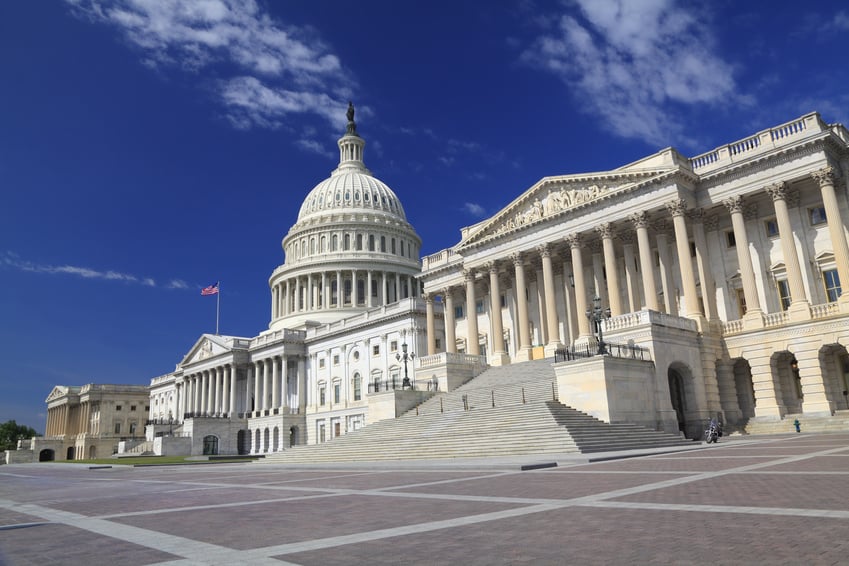The FTC’s new direction in pharmaceutical and PBM enforcement
In brief
Over the past few months, the Federal Trade Commission (FTC) has engaged in a comprehensive review of how the agency should evaluate antitrust issues affecting the pharmaceutical distribution stack.
Contents
1. Pharmacy Benefit Managers (PBMs)
3. Scrutiny of the Interplay Between PBMs and Pharmaceutical Companies
On 7 June, the FTC unanimously approved a Section 6(b) study into the business practices of pharmacy benefit managers (PBMs).1 A week later, the FTC hosted a two-day workshop entitled, “The Future of Pharmaceuticals” on June 14th and 15th that purported “to explore new approaches to enforcement the antitrust laws in the pharmaceutical industry.”2 The very next day, the FTC issued a unanimous policy statement on ramping up enforcement against any illegal rebate schemes by brand-name pharmaceutical companies that might stifle competition from generic or biosimilar drugs.3 The FTC also has shown glimpses of new policy changes in recent enforcement actions in the pharmaceutical industry, including a closer look at the nascent competition.
Key takeaways
These various initiatives highlight a number of areas where the agency has shown an interest in reinvigorating its approach:
- Greater scrutiny of nascent competition, including pre-clinical pipeline activities;
- Broader consideration of post-merger R&D incentives even where a specific product overlap or market has not been defined;
- Increased consideration of past conduct in assessing harm that might emerge as a result of a merger;
- Heightened interest in whether companies with large portfolios of products can use that ownership to harm competition;
- New attention to certain business practices—particularly rebates; and
- Deeper focus on vertical integration—particularly with respect to “conflicts of interest” that may arise post-integration.
Although these initiatives are varied and target different parts of the pharmaceutical stack, the FTCs actions signal a broader interest in adopting new approaches and a more aggressive enforcement posture when evaluating competition in markets involving pharmaceuticals.
In depth
Pharmacy Benefit Managers (PBMs)
On 7 June 2022, the FTC issued special orders to the country’s six largest PBMs,4 intermediaries that negotiate reimbursement rates and dispense fees with retail pharmacies, manage drug costs, and package these various services into a pharmacy benefit sold to health plans and plan sponsors. The special orders were issued under Section 6(b) of the FTC Act, which allows the FTC to study broader industry practices. These orders broadly probe three areas of concern:
Conflicts of interest concerning vertically integrated PBM/pharmacies
- Do PBMs that are vertically integrated with retail pharmacies charge special fees and issue clawbacks to unaffiliated pharmacies?
- Do PBMs employ anticompetitive methods to steer patients away from rival pharmacies and towards their own pharmacies?
- Do vertically integrated PBMs unfairly audit independent pharmacies?
Complex and opaque pricing structures
- Do PBMs employ unduly complex or opaque pricing structures for determining pharmacy reimbursement?
- Do PBMs take rebates and fees from drug manufacturers to create a formulary design that favors higher-costing pharmaceuticals over lower-costing ones?
Administrative complexity
- Do PBMs use prior authorizations and specialty-drug policies to restrict access to certain drugs?
While this study targets the purported effects of PBM practices, FTC Chair Lina Khan and Commissioner Rebecca Slaughter previously (and unsuccessfully) tried to authorize a broader study that also sought to examine whether “a range of [PBMs’] commercial practices” contributed to “troubling trend[s] in the drug retailing and fulfillment sectors.”5
Pharmaceuticals
For the Biden Administration, starting under then Acting Chair Slaughter and continuing under current Chair Khan, the pharmaceutical industry has been a significant priority for the FTC. Whether it is a two-day workshop on pharmaceutical mergers, a policy statement, or enforcement actions, the FTC is signaling an interest in taking a new approach in this space. In particular, participants in the workshop on “The Future of Pharmaceuticals: Examining the Analysis of Pharmaceutical Mergers” highlighted some new areas of emphasis:
- Nascent Competition. Chair Khan raised concerns around nascent competition, stating, “[w]e … have seen empirical reports showing that killer acquisitions, or acquisitions made for the purpose of shutting down potential competitors, may be relatively common in the pharmaceutical industry.”6 Accordingly, the FTC alleged a lessening of competition from a “nascent, innovative competitor” in a recent consent decree.7
- Innovation Competition. In her keynote remarks, Commissioner Slaughter signaled an intention for a closer review of mergers that reduce R&D, stating that “we must not limit our enforcement to existing products and pipeline products.” Commissioner Slaughter suggested that the FTC take a more expansive view of “innovation harms.” For example, she called for scrutiny at the level of “how clinical trials are conducted” and “how drugs are delivered.” She also called for scrutiny of “platform technologies” that could have applications in “different” treatment fields beyond those that are currently being contemplated by the transacting parties.
- Reduced Availability of Capital to Fund Innovation. Commissioner Slaughter raised concerns that mergers can negatively affect the incentives of smaller non-merging parties. She observed that “if a merger reduces the number of large firms that are the target sales audience for a new innovation being developed by a pharmaceutical startup,” it could “affect the availability of capital to those startups.”
- Past Conduct Informing Predictions of Future Conduct. Commissioner Slaughter stated that “the pharmaceutical industry has a particularly checkered legacy of anticompetitive conduct” and that the FTC “do[es] not pretend this anticompetitive activity does not exist when [] considering parties proposing to acquire their competitors.”8
- Portfolio Effects. Other panelists also noted that so-called “conglomerate mergers” where a company acquires a portfolio of pharmaceuticals that are not direct substitutes might allow the merged firm to use bundling to ensure their whole line of products gains preferred status on a PBMs formulary.
In sum, these comments reflect a more wide-ranging view of the potential competitive concerns presented by pharmaceutical mergers and the need for the FTC to take a more aggressive enforcement posture than it has in the past.
Scrutiny of the Interplay Between PBMs and Pharmaceutical Companies
On 16 June, the FTC released a Policy Statement titled “Rebates and Fees in Exchange for Excluding Lower Cost Drug Products.” The Statement references complaints regarding the rebates and fees that drug manufacturers pay to PBMs. At the same time, the statement distinguishes between payments that “incentivize PBMs and other intermediaries to steer patients to higher-cost drugs over less expensive alternatives” from “good-faith rebates and fees for legitimate services that increase value to payers and patients.”9 The statement then outlines how the FTC may challenge the former type of payments:
- As “Exclusionary agreements” that constitute either (1) an “unreasonable agreement” under Section 1 of the Sherman Act, (2) “monopolization” under Section 2 of the Sherman Act, (3) unlawful “exclusive dealing” under Section 3 of the Clayton Act, or (4) “unfair methods of competition” under Section 5 of the FTC Act;10 or
- Under Section 2(c) of the Robinson-Patman Act (RPA), which prohibits certain kinds of price discrimination and commercial bribery in connection with the purchase or sale of goods.11 Commissioner Alvaro Bedoya, in a separate statement, elaborated that “[i]f buyers (say, an insurer and their insured customers) use an agent (say, a PBM) to negotiate on their behalf, and that agent takes payment from the seller (say, a drug manufacturer), this may create a conflict of interest. It may also be commercial bribery violating [the RPA].”12
Overall, this interplay of rebating practices between drug manufacturers and PBMs may become a factor in future investigations into PBM and/or pharmaceutical mergers.
Recommended actions
- Anticipate that antitrust authorities will look at a broader set of evidence in identifying harms to the competition, including previous conduct and ownership of a portfolio of products or services in the same space;
- Among harms that the antitrust authorities have always considered, such as innovation harms, expect them to engage in more sedulous inquiries into how companies compete to innovate;
- Be prepared for agencies to probe deeper into pipeline productions for an assessment of whether the merger harms nascent competition; and
- Be aware of perceived entanglements with other parts of the pharmaceutical stack, such as rebates from drug manufacturers to PBMs or vertical integration between PBMs and retail pharmacies, as those interrelationships may serve as the basis for greater scrutiny.
1 FTC Launches Inquiry Into Prescription Drug Middlemen Industry, Federal Trade Commission, Press Release (June 7, 2022)
2 The Future of Pharmaceuticals: Examining the Analysis of Pharmaceutical Mergers, Federal Trade Commission (June 14-15, 2022)
3 FTC to Ramp Up Enforcement Against Any Illegal Rebate Schemes, Brives to Prescription Drug Middlemen That Block Cheaper Drugs, Federal Trade Commission, Press Release (June 16, 2022)
4 6(b) orders were issued to CVS Caremark, Express Scripts, OptumRx, Humana, Prime Therapeutics, and MedImpact Healthcare Systems. FTC Launches Inquiry Into Prescription Drug Middlemen Industry, Federal Trade Commission, Press Release (June 7, 2022)
5 Remarks by Chair Lina M. Khan, Transcript of Open Commission Meeting, pg. 28 (February 17, 2022)
6 Remarks by Chair Lina M. Khan, The Future of Pharmaceuticals: Examining the Analysis of Pharmaceutical Mergers, pg. 3 (June 14, 2022)
7 Compl., In the Matter of Medtronic plc/Intersect ENT, Inc., Dkt. No. C-4763 at ¶ 7 (F.T.C. May 7, 2022)
8 Remarks by Commissioner Rebecca Kelly Slaughter, The Future of Pharmaceuticals: Examining the Analysis of Pharmaceutical Mergers, pg. 8-9 (June 14, 2022)
9 Policy Statement of the Federal Trade Commission on Rebates and Fees in Exchange for Excluding Lower-Cost Drug Products, Federal Trade Commission, pg. 4 (June 16, 2022)
10 Id. at 5.
11 Id. at 5-6.
12 Statement of Commissioner Alvaro M. Bedoya Regarding the Commission’s Rebate Policy Statement, pg. 2 (June 16, 2022)






